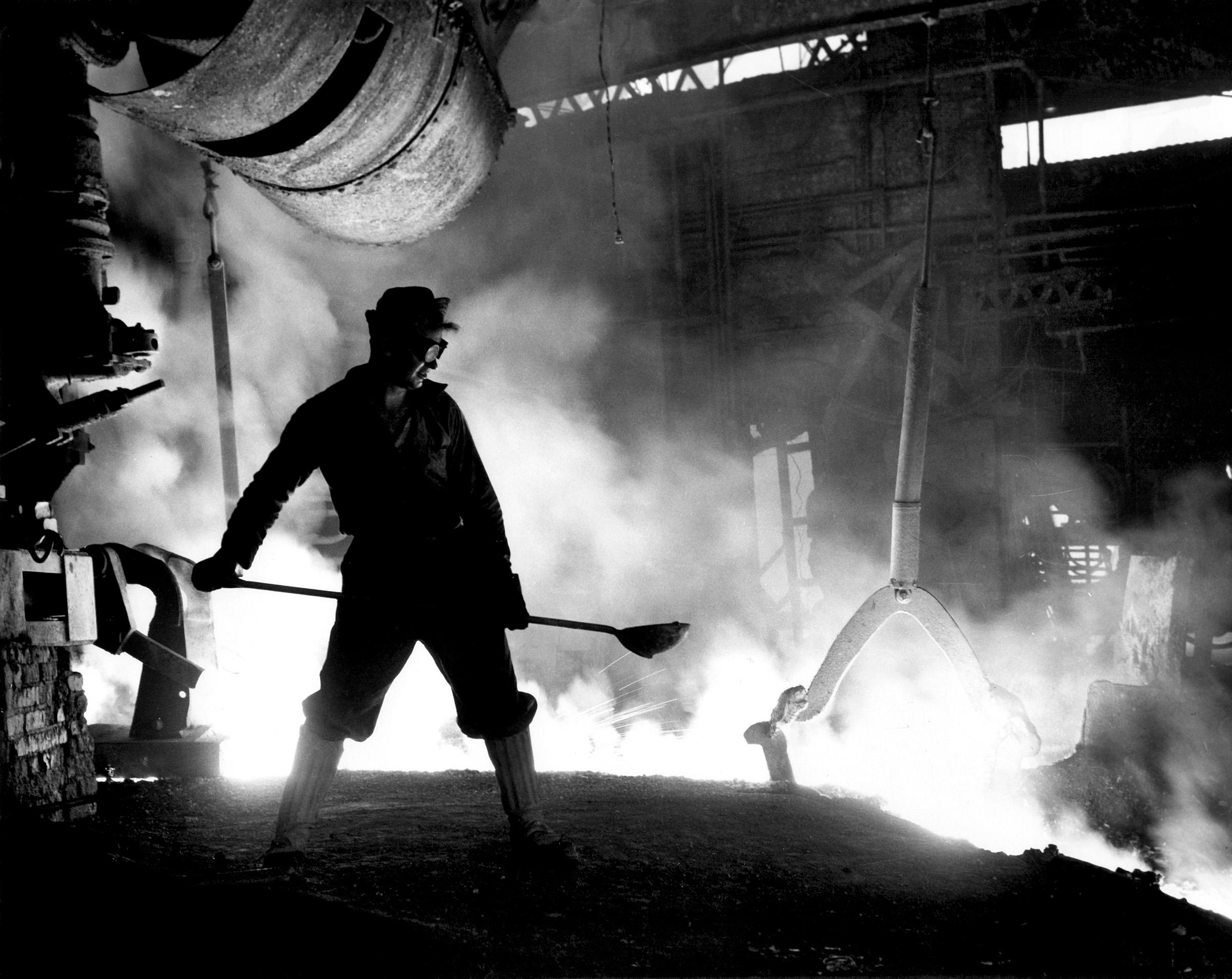
The Colorado Fuel and Iron Company was once the state’s largest employer, largest private landowner and ran the largest steel mill west of the Mississippi. CF&I’s history is filled with big numbers and big achievements along with violence and suffering for many of the tens of thousands of people who worked in the Pueblo mill and company coal mines.
"Forging The West," a new documentary about CF&I, premieres in Pueblo Nov. 11 and in Denver Nov. 15. Denver filmmaker Jim Havey produced and directed it.
Havey says CF&I got its start because the founder of the Denver and Rio Grande Western Railroad, Gen. William Jackson Palmer, wanted to build a railroad running between Denver and Mexico. Pueblo was close to coal and iron mines which could provide the raw materials to make steel for the railroad tracks, so that's where Palmer built a steel mill in the 1880s.
Former Colorado State Historian Bill Convery says Palmer realized that building a railroad was key to unlocking the potential mining wealth of gold, silver and coal.
"Palmer was a capitalist but he was at heart a Utopian," says Convery, "He believed that industry would create a better society for everyone. He spelled out a vision of an industrial society in Colorado that was managed by Palmer and his close friends for the benefit of all of the workers, that was benevolent and concerned about the needs of the employees."
But Palmer was eventually pushed out because shareholders felt he was mismanaging the company, says Havey. Palmer's successor, John Cleveland Osgood, also eventually lost control of the company when John D. Rockefeller, Jr. became the majority shareholder.
During Rockefeller’s tenure one of the most infamous parts of the CFI story occurred -- the Colorado Coalfield Wars and Ludlow Massacre of 1914. This was a violent part of labor history when miners went on strike for better wages and safer conditions.
The fortunes of CF&I rose and fell and the company changed hands several more times. During the post-war boom in 1953 there were some 12,000 people working in the Pueblo steel mill and the mines owned by CF&I around the region. They were part of some 25,000 people on the payroll of then-owner Charles Allen, who had steel interests that stretched from coast to coast.
Havey says the boom didn't last. There were all kinds of challenges including new environmental restrictions, competition and falling steel prices. Thousands were laid off, and the firm filed for bankruptcy.
Despite all the troubles the mill never stopped operations. Today there is still a steel mill in south Pueblo. It’s owned by a Russian company, Evraz. The firm doesn't make steel from raw materials anymore -- instead it comes from scrap metal.
Ben Lutze is the general manager of the Pueblo plant. He says it is the largest recycling operation in Colorado by volume, using some 1.2 million tons of steel each year.
"We operate an electric arc furnace and we'll take it from solid, cold scrap to 3,000-degree liquid steel in about 34 minutes," says Lutze. "We can fit about 130 automobiles in there. I like to say it can clear a Walmart parking lot faster than a Bluelight Special at Kmart."
Palmer’s legacy remains at the Pueblo steel mill -- its biggest product is steel rails, along with wire, rebar and pipe.
Colorado Matters host Ryan Warner speaks with filmmaker Jim Havey.
Related:
- Remembering The Ludlow Massacre 100 Years Later
- Documentary Spotlights Greek-American Miners In Shadow of Ludlow Massacre
- The Story Of What Happened After The Ludlow Massacre In Colorado
This story was changed to give the correct name of an early CF&I executive. It is John Cleveland Osgood, not Charles Osgood.









